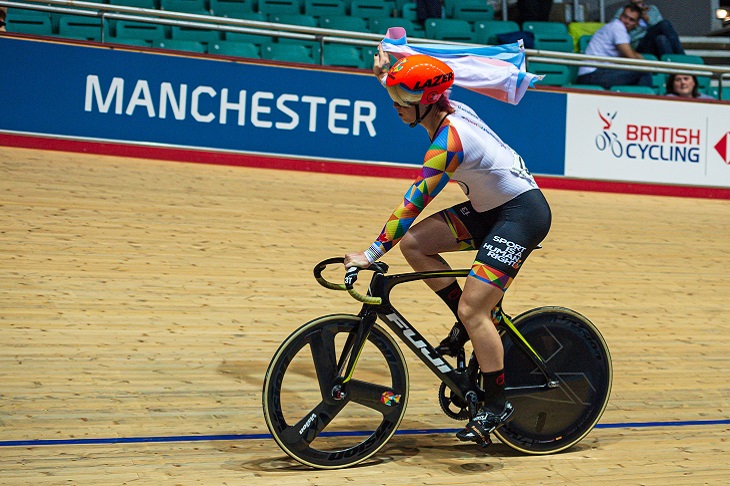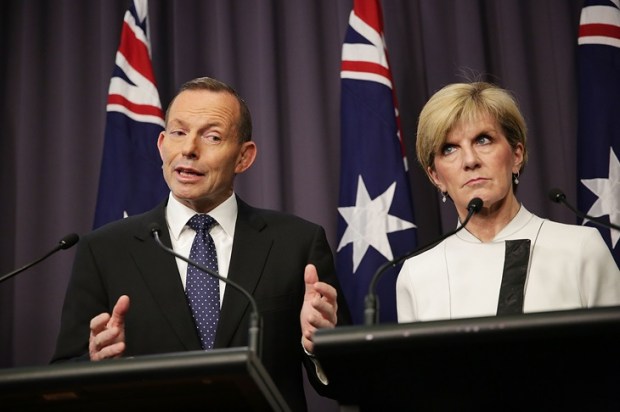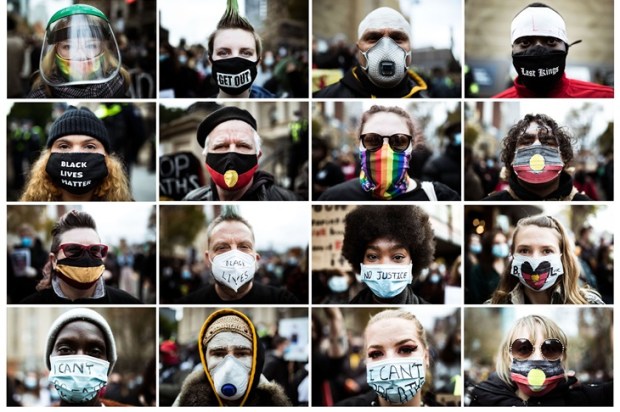The rise of trans-athletes – more specifically, male athletes competing in women’s sports – is going to reach breaking point eventually.
Supporters of radical gender theory making its way into competitive sport used to insist that the amount of trans athletes at the competitive level were ‘so small’ that they did not make a measurable impact on women’s careers. This has been proven false by an increasing number of biological men – some who only recently competed as adult men – moving in to claim victory in women’s races around the world.
Whether it is cycling, swimming, skateboarding, or surfing – women are finding themselves pushed out of the race.
The most recent example appeared in South-East London when the ThunderCrit independent ‘non-binary’ cycling race saw two biological men (who now identify as trans-women) take first and second place.
ThunderCrit already has two classes for competitors. ‘Thunder’ is a race designed for men while ‘Lightning’ is for women. However, the organisation’s new ‘inclusive’ philosophy means that competitors can race in whichever category they feel more closely aligns with their preferred (rather than actual) gender.
The ‘women’s’ race was therefore won by two biological men competing as transwomen. Even though this was allowed and made clear by the organisers, society at large appears to be cooling off when it comes to watching women nudged down the podium.
The winner, Emily Bridges, was excluded from partaking in a women’s cycling race in March of this year because she had been competing in men’s races up until a month before the race was scheduled to take place. Second placeholder, Lilly Chant, remains classified as a man on official records.
Biological woman and young mother, Jo Smith, posed with her daughter on the podium in third place.
BREAKING 🚴🏻
Emily Bridges and Lilly Chant take 1st and 2nd place in tonight’s Thundercrit cycle race at Herne Hill Velodrome.
Notice anything different about them compared to the cyclist who takes third place? #savewomenssports#WomensRightsNetwork pic.twitter.com/OF2lmtxKao
— Women’s Rights Network – WRN (@WomensRightsNet) June 3, 2022
Photographs from the event showing two men in first and second with the woman in third went viral shortly after, with other female athletes venting their fury that women are being excluded from competitive sport in the name of ‘inclusion’.
The official statement from the event’s organisers finished:
‘We will not be commenting further, especially to the media, or anyone who wishes to use our welcoming and inclusive race to push their narrative.’
Male and female sporting events were divided originally to give women a fair chance. The addition of biological men into women’s sport has essentially transformed the category into a ‘unisex’ event of women and middling male competitors who rarely received awards in their biological category.
British Cycling, who have said that they were not involved in this particular event, have copped some of the backlash and announced that they will be revising their policy. They have come under fire recently, such as when trans cyclist Rachel McKinnon won two World Masters titles in a row at the Cycling World Championships.
At the time, Victoria Hood, former British Masters Champion, said, ‘The science is clear – it tells us that trans women have an advantage. It is excluding women and girls from their own category … it is a human right to participate in sport. I don’t think it’s a human right to identify into whichever category you choose.’
Currently, their website states:
‘When we developed and published our Transgender and Non-binary Participation Policy, we did so with the intention of advancing the cause of promoting diversity and inclusion within the sport of cycling.
Understanding that this is a fast-moving area of sports policy and scientific research, we committed to reviewing our policy annually or more frequently, as required to reflect emerging circumstances.
Due to the difference in the policies held by British Cycling and the UCI relating to the licensing process, it is currently possible for trans-female athletes to gain eligibility to race domestically while their cases remain pending with the UCI (or indeed in situations where they are deemed ineligible).’
It seems extraordinary that in 2022 society has lost sight of an extremely basic biological reality between the sexes which saw competitive sport divided down the middle with men on one side and women on the other.
The idea that it is considered ‘discrimination’ or ‘hateful’ to prevent a man competing against a woman remains one of the unsustainable repercussions of radical gender theory that is unlikely to survive long as competitive sportswomen rebel against the intolerable situation they now find themselves in.
Academia (who aren’t known for their sporting prowess) is well on the way to demanding the complete erasure of gender segregation from sport. Perhaps we should let them? It won’t take long for the unisex sporting world to stage a revolution as high-paid, successful female athletes find themselves being beaten by inexperienced teenage boys.
Got something to add? Join the discussion and comment below.
Get 10 issues for just $10
Subscribe to The Spectator Australia today for the next 10 magazine issues, plus full online access, for just $10.


























Comments
Don't miss out
Join the conversation with other Spectator Australia readers. Subscribe to leave a comment.
SUBSCRIBEAlready a subscriber? Log in